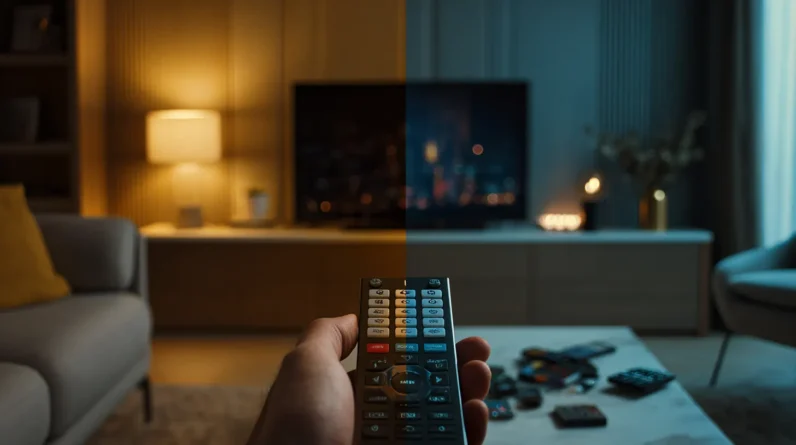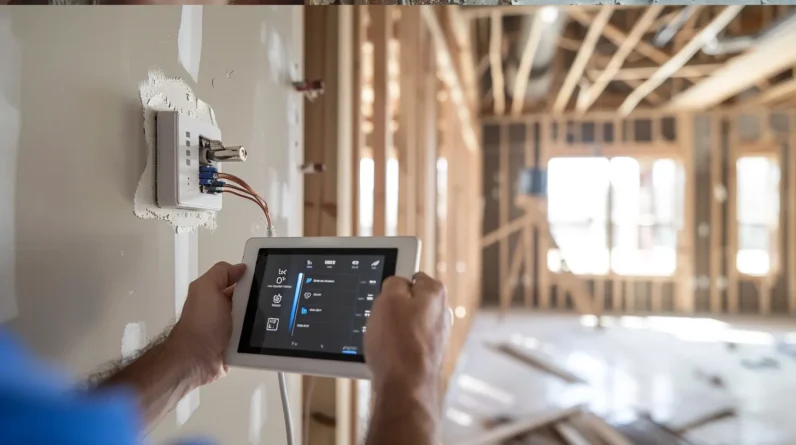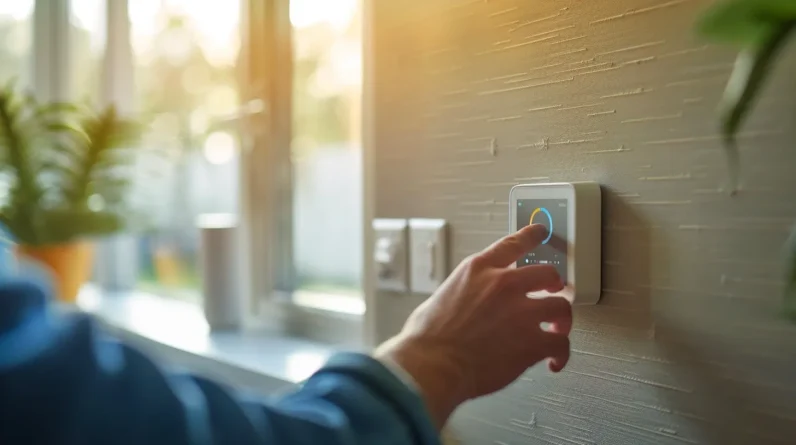
Our obsession with smart home efficiency stems from a psychological need to transform abstract anxieties—climate change, energy costs, uncertainty—into concrete, measurable actions we can control. We’re chasing dopamine hits from optimized metrics while avoiding harder systemic questions about consumption. The dashboard becomes less about actual environmental impact and more about emotional regulation, offering moral licensing through endless micro-adjustments. What appears as rational optimization often masks compulsive behavior where monitoring replaces meaningful change, and the tools designed to serve our goals gradually become the goals themselves.
The Illusion of Control in an Uncertain World
When we obsess over shaving another kilowatt-hour from our monthly energy bill, we’re often responding to something deeper than financial prudence. Our brains crave controllable variables in an increasingly volatile world. Smart home systems exploit this fundamental human behavior by offering measurable metrics we can influence directly.
This creates what psychologists call an illusion of control—cognitive biases convince us that optimizing thermostat schedules matters more than it statistically does. We’ll spend hours tweaking automation rules that save pennies while ignoring systemic factors like insulation quality or utility rate structures. The dashboard becomes a psychological anchor point, transforming anxiety about climate change, inflation, or energy security into actionable tasks. We’re not just managing electricity; we’re managing our need for agency.
Gamification and the Dopamine Loop of Efficiency Metrics
As we refresh our energy dashboard for the third time today, our brains release small hits of dopamine—the same neurotransmitter activated by slot machines and social media notifications. Smart home apps exploit this neurochemistry by transforming mundane household operations into quantified achievements. Energy tracking becomes a game where we chase lower kilowatt-hours like high scores.
These reward systems create what behavioral scientists call variable ratio reinforcement schedules. We can’t predict exactly when we’ll see that satisfying drop in consumption, so we check constantly. The metrics themselves become more compelling than the underlying goal of sustainability. We’re optimizing for the dashboard’s validation rather than genuine environmental impact. This dopamine loop explains why we’ll spend thirty minutes analyzing data to save three cents on electricity—the numbers matter more than the economics.
Environmental Guilt and the Quest for Moral Redemption
Behind every obsessive thermostat adjustment lies an emotional calculation: if we can just optimize our home’s energy use enough, perhaps we’ll offset our carbon-heavy flights, our consumerist habits, our participation in destructive economic systems.
This phenomenon reveals how green living transforms into psychological compensation rather than systemic change. We fixate on controllable metrics—standby power, HVAC scheduling, phantom loads—while avoiding harder questions about consumption patterns. The smart home becomes a confessional booth where we seek absolution through optimization.
Research shows this eco consciousness paradox: those monitoring energy use most obsessively often maintain highest overall carbon footprints. We’re micromanaging symptoms while ignoring root causes. The efficiency dashboard provides moral licensing, creating permission structures for unsustainable behaviors elsewhere. We’ve gamified redemption itself, mistaking measurement for meaningful action.
The Quantified Home: Data as Comfort and Validation
Research shows we check these metrics not because the system requires intervention, but because the numbers themselves provide comfort. We’re not monitoring efficiency—we’re monitoring our own adequacy.
When Automation Becomes Compulsion: Recognizing the Tipping Point
When checking our smart home app becomes the first thing we do each morning—before coffee, before conversation—we’ve crossed from optimization into ritual. This tipping point manifests through specific behavioral markers: we experience techno anxiety when separated from monitoring capabilities, adjust functional systems repeatedly without measurable benefit, and sacrifice personal freedom to maintain perfect environmental parameters.
The distinction lies in agency. Healthy automation serves our goals; compulsive automation becomes the goal itself. We recognize this shift when deviation from programmed routines triggers disproportionate stress, when we prioritize system perfection over human flexibility, or when we compulsively seek new devices to “complete” an inherently completable setup. The system meant to free our attention now monopolizes it, transforming efficiency tools into psychological dependencies that demand constant engagement.
Conclusion
We’ve traced efficiency obsession to deeper psychological currents: our need for control, dopamine-driven feedback loops, environmental anxiety, and data’s seductive promise of certainty. The pattern reveals itself clearly—when optimization shifts from tool to compulsion, we’re no longer managing our homes; they’re managing us.







